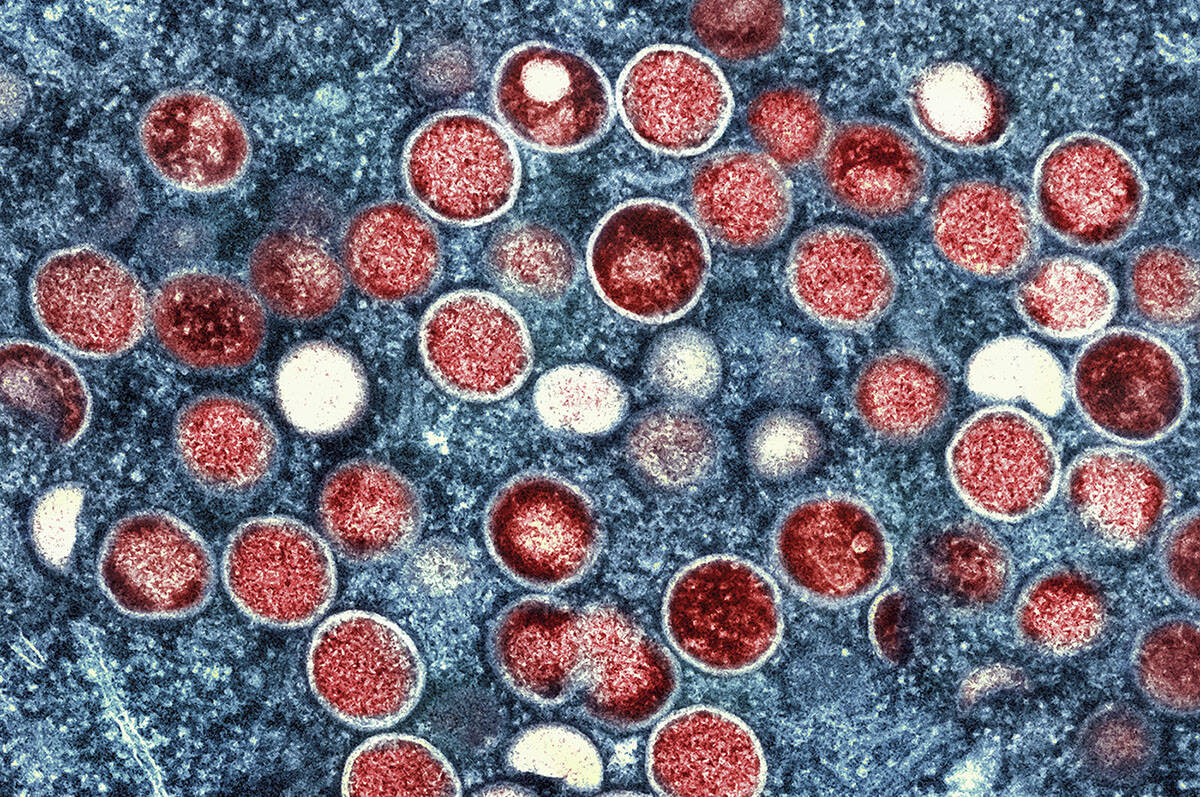Health district reports 1st death of Clark County resident with monkeypox

The first death of a Clark County resident with monkeypox was reported Thursday by the Southern Nevada Health District.
The patient, a man over the age of 50, had a compromised immune system, and his death was attributed to other causes, according to the district.
“This is a tragic situation, and our sympathies are with his family and friends,” district health officer Dr. Fermin Leguen said in a news release.
Individuals with compromised immune systems are at greater risk for complications from the virus, according to the district.
The health district has reported 270 confirmed and probable cases of monkeypox cases in the county. The number of new cases reported each week continues to decline. The first case in Clark County was reported in June, as outbreaks began to be reported across the country.
The virus, whose symptoms include a rash or lesions and flu-like symptoms, typically is spread through intimate skin-to-skin contact, such as through sex.
“People can protect themselves from monkeypox by avoiding close, skin-to-skin contact with people who have monkeypox, contact with objects and materials that a person with monkeypox has used, and washing their hands often,” the release said.
Monkeypox primarily has been spreading in the social networks of men who have sex with men; but anyone can become be infected with monkeypox.
The most recent data from the health district shows that 96 percent of cases have been in men. Eighty-eight percent have identified as lesbian, gay, bisexual or transgender.
The two-dose Jynneos vaccine is offered by the health district and by Huntridge Family Clinic and The LGBTQ Center of Southern Nevada.
“It is important for those who have received their first dose of the vaccine to return for the second dose to ensure they get the best protection, not just partial protection, against the virus,” the district said.
An estimated 7,055 doses of the vaccine have been administered in Clark County.
The antiviral drug tecovirimat, known as TPOXX, is being used to treat those at higher risk for becoming severely ill.
Contact Mary Hynes at mhynes@reviewjournal.com or 702-383-0336. Follow @MaryHynes1 on Twitter.